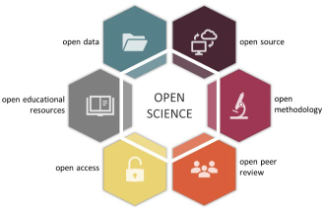Debunking myths around open data
Introduction
Scientific research has led to multiple advancements and methodological innovations. However, modern scientists function under constant time pressure to produce a high number of publications and statistically significant results, thus sometimes they resort to questionable research practices. In a survey that examined how widespread these practices are in the field of Ecology and Evolutionary Biology, the majority of participants admitted to having implemented a questionable practice in the past. 64% of the respondents had selected only the statistically significant results of an analysis (cherry picking) in at least one publication. 42% collected additional data after checking the significance of the data (p-hacking) and 51% admitted to presenting an unexpected result as their initial hypothesis (HARKing).


